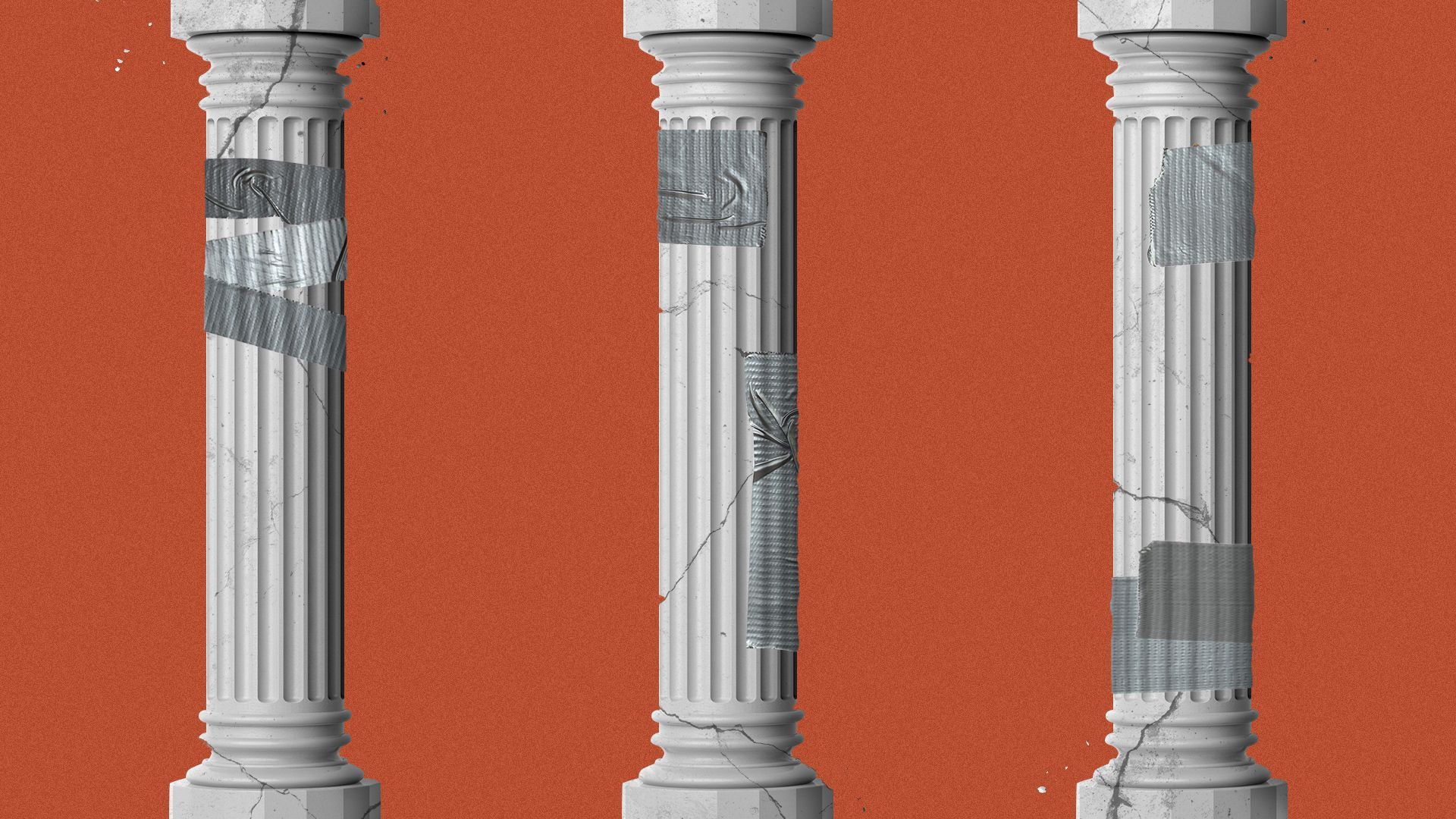College admins have blown it with pro-Palestinian protests

- Eleanor Hawkins, author ofAxios Communicators

Illustration: Aïda Amer/Axios
University leaders who have struggled for six months to communicate their free speech policies in response to the Israel-Hamas conflict are having cops in riot gear now do it for them.
Why it matters: Trying to have it both ways — allowing demonstrations for months and now sending police to break up protests — has succeeded in alienating everyone.
Catch up quick: Since the start of the Israel-Hamas war, college officials have struggled to respond for fear of angering students, faculty, donors and alumni.
- This led to several university presidents testifying before Congress to answer whether "calling for the genocide of Jews" violates their schools' codes of conduct. Their convoluted response eventually caused some to lose their jobs.
Between the lines: Given how complicated and contentious the Israeli-Palestinian conflict is — and has always been — it was inevitable that any nuanced response to protests would alienate students, professors or alumni, according to several communication professionals who declined to speak on the record because of the topic's sensitive nature.
- However, it was the lack of communication from university leadership and an inability to establish clear safety protocols that truly caused matters to boil over.
- "Every day that you don't have police on campus arresting students is a good day," said a higher ed communications consultant. "Keeping the long view and maintaining constructive lines of communication should be the goal."
State of play: Brown University leadership was able to de-escalate the protests and disband the encampment by agreeing to sit down with protesters next month.
- Northwestern University also reached an agreement with student protesters.
Yes, but: There have been at least 1,300 arrests at 40 college campuses nationwide, according to an Axios tally.
- Meanwhile, several colleges are canceling classes or making them virtual due to the security risks and at least one university has canceled its upcoming graduation ceremony.
The big picture: While the protesters make up a minority of student and faculty members, the viral attention generated by social posts and media coverage has further amplified the pro-Palestinian cause.
- And many say that's the point.
What they're saying: "It's never been easier to garner mainstream attention," says another communications adviser who works with universities. "You don't need a bank of TV cameras present to have something show up on the morning show ... one cellphone video or TikTok can have the same impact."
What to watch: The attention these protests have captured could be further amplified during high-profile commencement addresses — like President Biden's upcoming speech at Morehouse College, Jerry Seinfeld's address at Duke University or Melinda Gates' appearance at Stanford.
- And university administrators are anticipating it.
- "Even in a normal year, we spend a lot of time planning and preparing for commencement because it's a huge day with many high-profile people around," said one communicator who works at a university where there's currently a protest. "The amount of hours we've spent discussing this year's possibilities is unlike any other."
Go deeper: